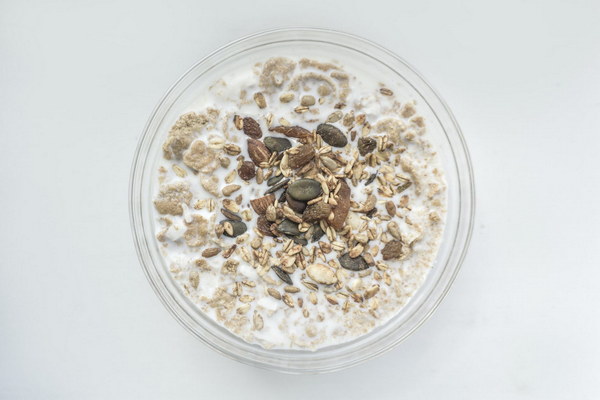Will Damp-Phlegm Constitution Reduce Weight Through Damp-Phlegm Removal
Introduction:
Damp-Phlegm Constitution is a concept in Traditional Chinese Medicine (TCM), where individuals are believed to have an imbalance of dampness and phlegm in their bodies. This imbalance is often associated with various health issues, including weight gain. The question on many individuals' minds is whether removing dampness and phlegm can lead to weight loss for those with a Damp-Phlegm Constitution. In this article, we will explore the connection between damp-phlegm constitution and weight loss, and discuss the most effective strategies to achieve this goal.
Understanding Damp-Phlegm Constitution:
Damp-Phlegm Constitution is a TCM concept that refers to a body's condition where dampness and phlegm accumulate in the body, leading to various symptoms such as fatigue, bloating, and weight gain. In TCM, dampness is a substance that can slow down the body's metabolism and lead to the accumulation of phlegm, which further hinders weight loss.
The Link Between Damp-Phlegm Constitution and Weight Loss:
According to TCM, damp-phlegm constitution can contribute to weight gain due to the following reasons:
1. Slow Metabolism: Dampness can slow down the body's metabolism, making it more challenging to burn calories and lose weight.
2. Water Retention: Excess phlegm can lead to water retention, causing bloating and weight gain.
3. Poor Digestion: Dampness and phlegm can affect the digestive system, leading to poor absorption of nutrients and increased appetite, which can contribute to weight gain.
Effective Strategies for Weight Loss in Damp-Phlegm Constitution:
1. Diet:
- Reduce intake of damp and cold foods, such as raw fruits, vegetables, and cold drinks.

- Increase consumption of warm, cooked foods, such as soups, stews, and steamed vegetables.
- Include foods that help drain dampness, such as ginger, turmeric, and dandelion.
2. Lifestyle Changes:
- Regular exercise, such as walking, jogging, or yoga, can help improve metabolism and reduce dampness.
- Adequate sleep is crucial for balancing the body's fluids and reducing dampness.
- Manage stress, as it can lead to the accumulation of dampness in the body.
3. Herbs and Supplements:
- Herbs such as astragalus, rehmannia, and atractylodes can help drain dampness and reduce phlegm.
- Supplements like bromelain and ginger extract can aid in digestion and reduce dampness.
4. Acupuncture and Massage:
- Acupuncture can help balance the body's energy and reduce dampness and phlegm.
- Massage therapy can improve circulation and promote the draining of dampness.
Conclusion:
While weight loss may not be solely attributed to damp-phlegm constitution, addressing this imbalance can help in achieving weight loss goals. By adopting a combination of diet, lifestyle changes, and TCM practices, individuals with a damp-phlegm constitution can reduce dampness and phlegm accumulation, leading to improved metabolism, reduced bloating, and ultimately, weight loss. It is essential to consult a healthcare professional or TCM practitioner to tailor the treatment plan according to individual needs and conditions.









